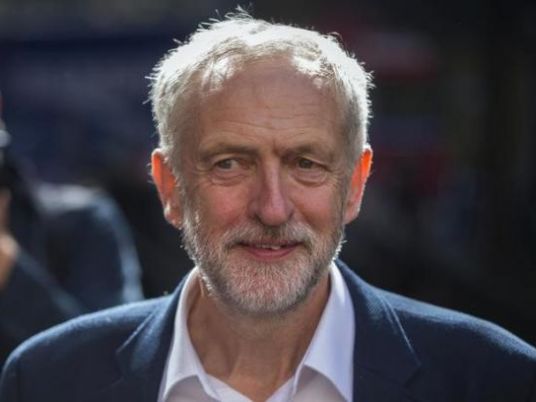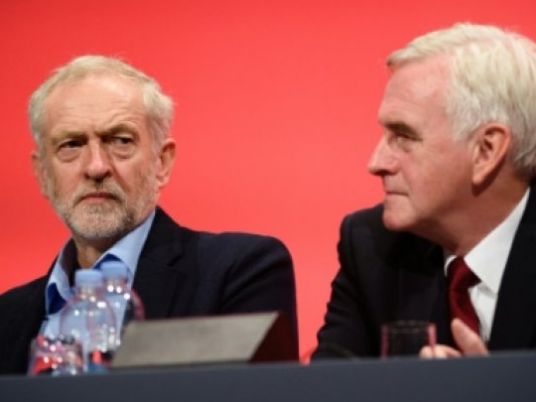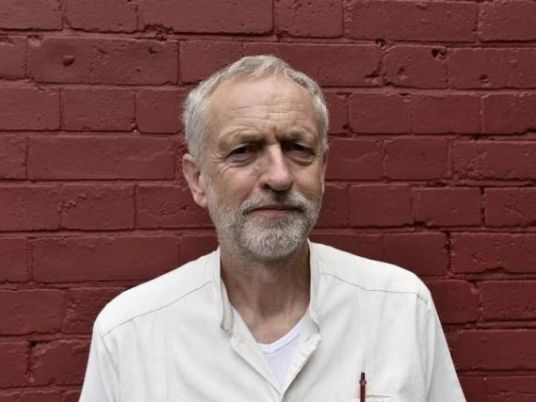
The new leader of opposition Labour Party named an ally whose declared aim is the overthrow of capitalism as finance spokesman on Monday, pushing hard-left policies that opponents say will make the party unelectable.
After winning Labour's top job by a landslide on Saturday, Jeremy Corbyn named senior members of his would-be government including John McDonnell – a former trade unionist who backs renationalising banks and imposing wealth taxes – as his finance minister-in-waiting.
McDonnell lists "generally fomenting the overthrow of capitalism" among his interests in the Who's Who directory of influential people, and wants public ownership of the banks to take control of what he calls Britain's "casino economy".
"My new policies with Jeremy's have been roundly endorsed by the leadership election, so the economy would be safe in our hands but also it would be more prosperous," McDonnell, 64, told BBC Radio after the appointment.
"I've got a long history in terms of financial administration," he said, citing his experience running London's multi-billion pound local government budget in the early 1980s.
British governments have championed free markets since Conservative Margaret Thatcher became prime minister in 1979, building what foreign investors say is one of the world's most open economies. Labour premiers Tony Blair and Gordon Brown also followed pro-business policies from 1997 to 2010.
McDonnell stirred controversy five years ago by quipping that if he could return to the 1980s he would have assassinated Thatcher. He later apologised for the comment which he said was a joke.
Conservative Prime Minister David Cameron, who won an unexpectedly strong election victory in May on promises to secure economic growth and reduce public spending, has warned that Corbyn's policies are a threat to Britain's economic security.
Corbyn's appointment of McDonnell, rather than a more pragmatic figure from outside his left-wing camp, is the strongest signal since he was elected leader that he intends to pitch Labour as a hard left party of state intervention.
"BRING GOVERNMENT DOWN"
Corbyn won the overwhelming support of party activists by rejecting Blairite policies and the Conservative government's plans to balance the state budget with more spending cuts.
Instead, he has proposed wealth taxes, money-printing, nuclear disarmament and a British exit from the NATO military alliance. He is ambiguous on Britain's membership of the EU, which is due to be decided in a referendum promised by Cameron.
"We will seek to do everything we can, not just to prevent Tory (Conservative) legislation, not just to prevent attacks on our community – we want to bring this government down," McDonnell told supporters on Saturday.
McDonnell, like Corbyn, has repeatedly rebelled in parliamentary votes against Labour policy over several decades. In July he told parliament he would be prepared to "swim through vomit" to vote against Conservative proposals to cut welfare spending, defying a party order to abstain.
As Cameron's finance minister, George Osborne, can rely on a working majority of 16 lawmakers in parliament, there is little likelihood that Labour could influence fiscal policy in the medium term.
END THE "CASINO ECONOMY"
McDonnell, who has twice unsuccessfully run for the Labour Party leadership himself, wants public ownership of the banking system in order to take control of what he calls Britain's "casino economy", according to his website.
The British state holds a majority stake in RBS and a minority stake in Lloyds after their bailouts during the financial crisis, but the government is gradually selling both banks back to the private sector.
Investment bank HSBC dedicated a research note on Monday to examining the proposals at the heart of "Corbynomics", highlighting fears about the impact it would have on prices, the labour market and overall government finances.
"The concern will be that his plans to increase spending not only reverse the improvement in public finances in recent years,
but could potentially lead to higher inflation as well," the note said.
McDonnell wrote in 2012 that a financial transaction tax would halt "the frenetic, madcap speculation in the City" and raise money for infrastructure investment.
"If the City resists then let's make it clear that capital controls would follow," he said in a piece for Labour Briefing, a left-wing website.
He has also said he wants to take the power to set interest rates away from the Bank of England and to give it back to government. This would reverse a decision by the Blair government to let the central bank decide monetary policy.
However, another of Corbyn's appointments, foreign affairs spokesman Hilary Benn, tried to ease doubts over the party's stance on the upcoming EU referendum, promising Labour would campaign for Britain to stay in the bloc "under all circumstances".
McDonnell has also said Britain's rail system should be renationalised and that the power of the country's six big energy suppliers should be reduced by expanding renewable energy production in local communities.
He, along with Corbyn, has previously opposed expansion of Britain's Heathrow airport – something an independent inquiry recommended earlier this year as the best solution to an aviation capacity shortage.
(This story has been refiled to add dropped word "of" from lead)
(Additional reporting by William Schomberg and Stephen Addison; editing by David Stamp, Guy Faulconbridge)


